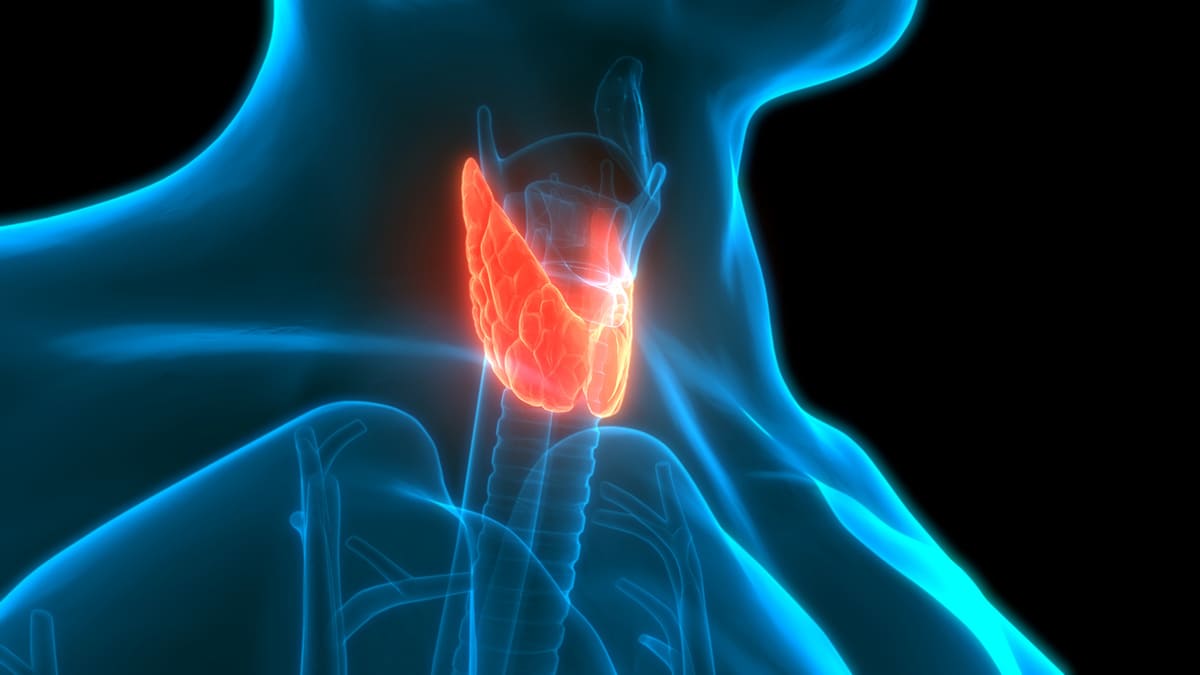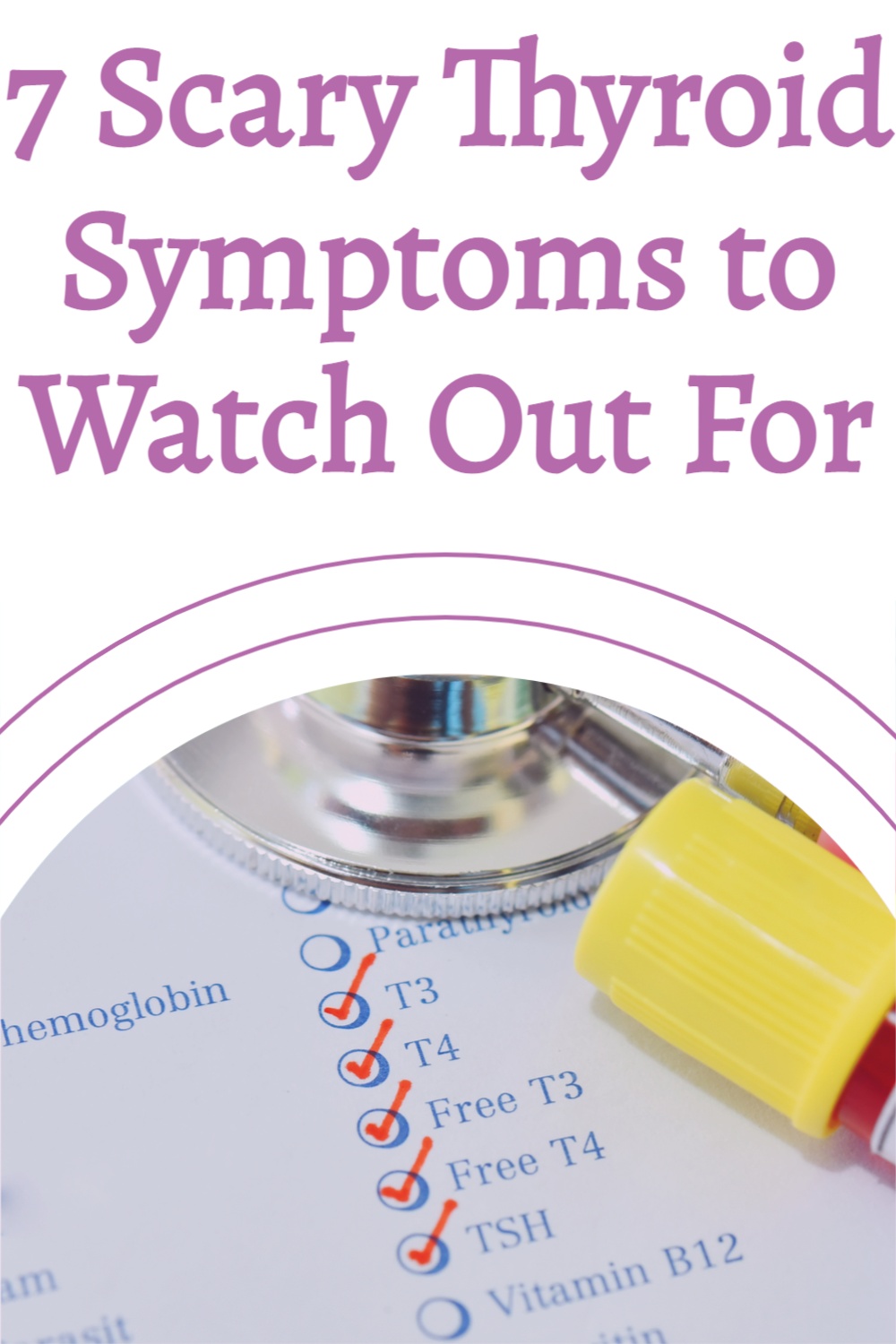Too many times, the natural process of aging is blamed for troublesome symptoms. How often have you heard someone refer to their age as the reason for their forgetfulness or insomnia?
Perhaps you have blamed your fatigue as an unavoidable part of getting older. Unless you know you have a disease or a condition that could be responsible for any new symptoms, you shouldn’t be so quick to write them off as a natural part of the aging process.
Your Thyroid As You Age
Many thyroid diseases, including hypothyroidism and hyperthyroidism, affect women at a rate estimated to be between 5 and 20 times higher than they do men, according to a study published in Menopause Review. As a person ages, the prevalence of thyroid diseases tends to increase.
Thyroid disease could be responsible for a number of symptoms that are often attributed to other conditions. However, because symptoms such as sweating, insomnia, weight gain, and anxiety can also result from ovarian dysfunction as you move into menopause, narrowing down the cause can be challenging.
Thyroid Basics

Sitting just above your Adam’s apple is your thyroid. The thyroid hormones (TH) it produces help regulate bodily functions such as your metabolism, heartbeat, and temperature — among other things. If your thyroid is producing too little of these hormones, it’s known as hypothyroidism; too much TH means you have hyperthyroidism.
Thyroid Symptoms That Should Prompt You to Get Checked
Any new or otherwise unexplained symptoms deserve a more thorough check. Below are a few thyroid symptoms that could indicate your thyroid is not working correctly.
1. Anxiety

Feeling anxious and jittery, especially when you can’t identify a trigger, could signify that your thyroid is making too much TSH. This can result in your body being inundated with the message that it needs to be on overdrive.
2. Exhaustion
At the other end of the spectrum is a thyroid disease symptom that is commonly seen in many other conditions. Strongly linked to hypothyroidism, the kind of exhaustion that is worrisome here is when you wake up from a full night’s sleep, and you’re still noticeably fatigued.
3. Increased Appetite

If you have hyperthyroidism, you could experience an increase in your appetite that might leave you feeling hungry nearly all the time. Despite your voracious appetite, you might notice very little change in your weight. This is hyperthyroidism, which can offset any extra calories you ingest.
4. Altered Taste Buds
Too little TH coursing through your body can result in changes in both your sense of taste and your sense of smell. For many people, the changes are so significant they sap any enjoyment food brings.
5. Bowel Changes

Unexplained changes in your bowel habits should always be checked out. If you suddenly have bouts of diarrhea or have bowel movements more frequently, hyperthyroidism could be the culprit. On the other hand, constipation could be the result of a reduced amount of TH, which is indicative of hypothyroidism. This can then disrupt your body’s digestive processes.
6. Sadness and/or Depression
Everyone feels sad or depressed at some point in their lives. For most people, though, you can pinpoint the reason behind it: a friendship that’s coming to an end, a loved one’s health problems, or even too many days of dreary weather. Many times these down feelings tend to come and go before lifting after a few days.
If you find yourself feeling sad and depressed for no discernible reason, it could be a sign that you have hypothyroidism. Though scientists aren’t exactly sure what the connection is between the two, the current thinking in the field points to the impact TH has on the hormone serotonin. If your body is making too little thyroid hormone, it’s entirely possible your brain isn’t getting enough of the “feel good” hormone, serotonin, either.
7. Dry Skin
If you’ve noticed changes in your skin, hair, and nails, it could be because your thyroid hormone levels are being dialed back. Dry and itchy skin and brittle nails could be due to your body’s metabolism slowing down. This is caused by hypothyroidism.
According to the statistics, more than 20 million people have a thyroid disease. Even more startling is that about half of those are estimated to be undiagnosed and suffering in silence.

If you have any of the above thyroid symptoms, make an appointment with your doctor for a thyroid evaluation. While you’re at the doctor’s office, your medical provider will likely examine this butterfly-shaped organ that’s located in your neck. You’ll also need a simple blood test that measures your TSH, T4, and T3 levels.
Our Picks:




Read Next:
Do Thyroid Disorders Cause Brain Fog?
The Best Foods To Nourish the Thyroid








